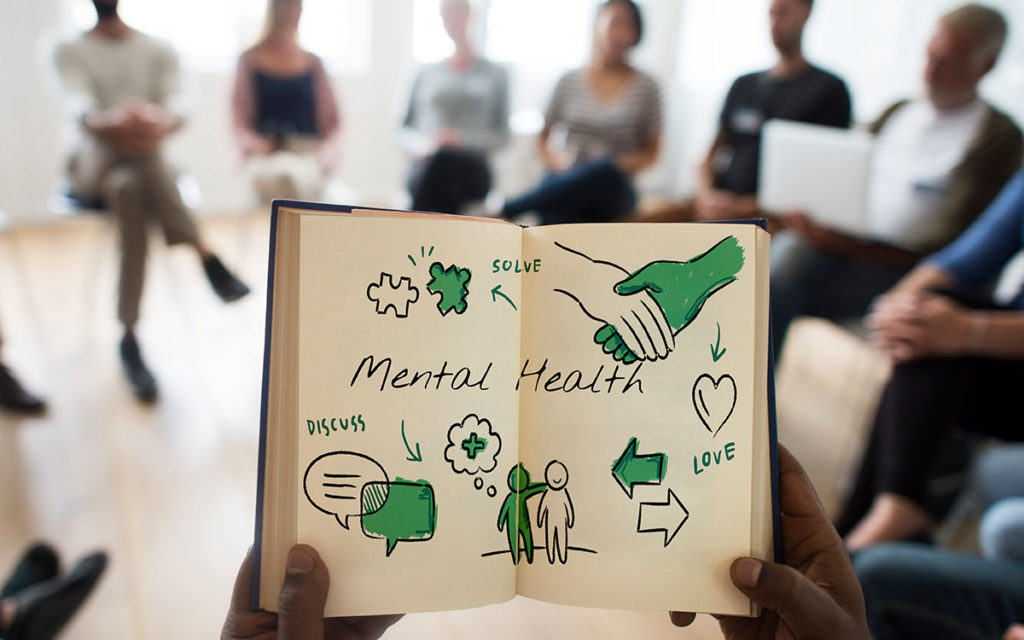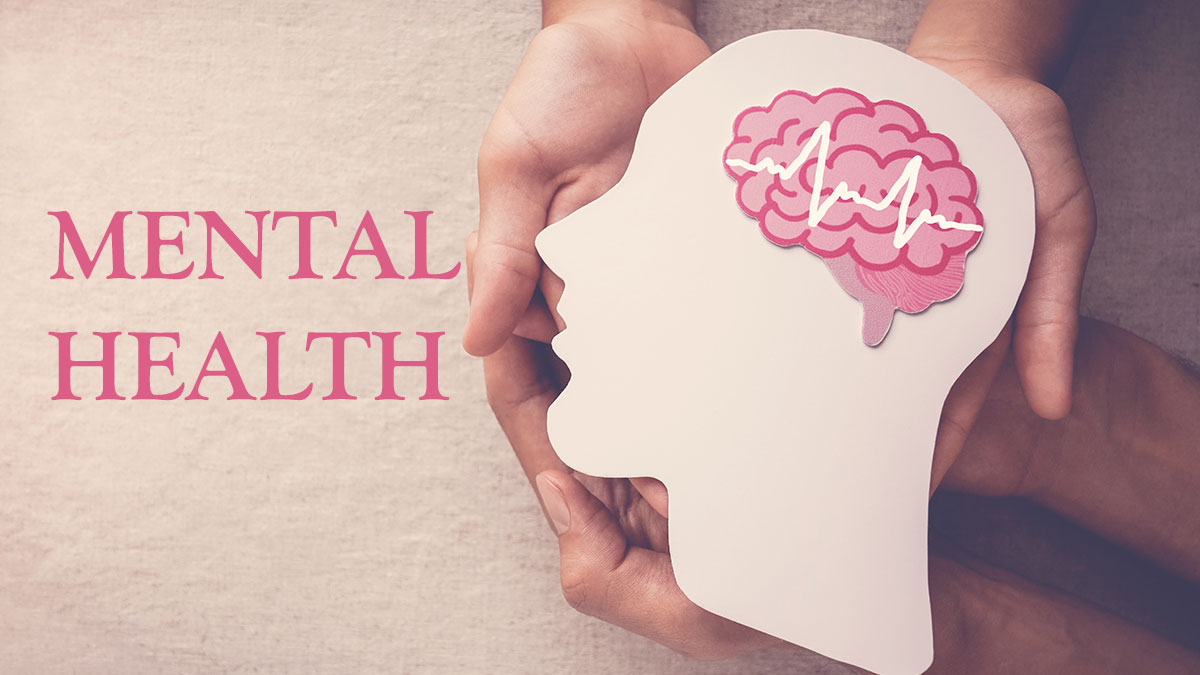What Is Mental Health and How Does It Affect You?
Our emotional, psychological, and social well-being are all part of our mental health. It has an impact on the way we think, feel, and behave. It also influences how we deal with stress, interact with people, and make decisions. Mental health is vital at all stages of life, including childhood, adolescence, and maturity. If you have mental health difficulties, your thinking, emotions, and behavior may be altered throughout the course of your life. Many variables have a role in mental illness, including:
- Genes and brain chemistry are examples of biological influences.
- Trauma or abuse are examples of life events.
- Mental health issues run in the family.
- Mental health issues are frequent, but there is assistance. People with mental illnesses may improve, and many will recover entirely.
Symptoms to Look Out For
Are you unsure whether you or someone you know is suffering from mental illness? One or more of the emotions or actions listed below might be an early warning indication of a problem:
- Pulling away from people and normal activities by eating or sleeping too much or too little
- Lacking or having no energy
- Feeling numb or as though nothing is important
- You’re experiencing unexplainable aches and pains.
- If you’re feeling powerless or hopeless, there’s a good chance you’re
- More than normal smoking, drinking, or drug use
- Feeling especially perplexed, forgetful, agitated, furious, disturbed, frightened, or afraid?
- Family and friends yelling or fighting
- Having significant mood swings that create relationship troubles
- Hearing voices or believing things that aren’t real Having persistent ideas and memories that you can’t get out of your brain
- Consider self-harm or injuring others.
- Inability to carry out everyday activities such as caring for your children or going to work or school.
- Find out more about certain mental health issues and how to get treatment.
Wellness and Mental Health
People with good mental health can:
- Realize all of their potential
- Work successfully while dealing with life’s difficulties
- Contribute meaningfully to their communities
- The following are some suggestions for maintaining good mental health:
- If you need expert assistance, you should do so.
- Making connections with other people
- Keeping an optimistic attitude
- Getting some exercise and assisting others
- Getting enough rest
- Increasing coping abilities
The significance of wellness and prevention
Myths and Facts about Mental Health
Can you identify the difference between a myth and a truth about mental health? Discover the reality behind some of the most frequent mental health misconceptions.
- Everyone is affected by mental health issues.
- Myth: I’m unaffected by mental health issues.
Mental health issues are really rather prevalent. In 2014, approximately:
- One out of every five people in the United States has had a mental health problem.
- One out of every ten young individuals has gone through a depressive episode.
- A significant mental disease, such as schizophrenia, bipolar disorder, or major depression, affected one out of every twenty-five Americans.
- In the United States, suicide is the tenth highest cause of death. It claims the lives of about 41,000 Americans each year, more than twice the number of those killed by murder. Find out more about mental health issues.
Myth: Children do not have mental health issues.
Fact: Even very young children might exhibit early indicators of mental health issues. These mental health issues are often clinically diagnosable and may be the result of biological, psychological, and social variables interacting.
Half of all mental health issues begin before the age of 14, and three quarters of all mental health disorders begin before the age of 24. Unfortunately, only around 20% of children and adolescents with diagnosable mental health issues get the help they need. Early mental health intervention may assist a kid before their issues interfere with their other developmental requirements.
Myth: People who suffer from mental illnesses are aggressive and unpredictable.
Fact: The great majority of persons with mental illnesses are no more likely than anybody else to be violent. The majority of persons with mental illnesses are not aggressive, and approximately 3%–5% of violent actions may be attributable to those with significant mental illnesses. In fact, those with serious mental disorders are nearly ten times more likely than the average population to be victims of violent crime. Because many persons with mental health difficulties are very engaged and valuable members of our communities, you probably know someone with a mental health problem and aren’t even aware of it.
Myth: People with mental health issues, including those who are managing their disease, are unable to cope with the stress of working.
Fact: Employees with mental illnesses are just as productive as their coworkers. Employers that recruit persons with mental health issues say that they have high attendance and punctuality, as well as motivation, good performance, and employment duration that is comparable to or greater than that of other workers.
When workers with mental health issues get successful treatment, they may have the following benefits:
Total medical expenses are lower.
- Productivity increases
- Absenteeism is reduced.
- Disability expenses are reduced.
- Myth: Personality faults or character flaws are to blame for mental health issues. If those with mental illnesses work hard enough, they can snap out of it.
- Fact: Mental health issues are not caused by laziness or weakness, and many individuals need assistance to recover. Many variables have a role in mental illness, including:
- Genes, physical sickness, damage, or brain chemistry are all biological influences.
- Trauma or a history of abuse are examples of life events.
- Mental health issues run in the family
People with mental illnesses may improve, and many will recover entirely.

Individuals Suffering From Mental Illness
Myth: People suffering from mental illnesses have no hope. A friend or family member who develops mental health issues will never be able to recover.
Fact: Studies indicate that persons with mental illnesses improve with time and that many of them recover fully. The process through which individuals are able to live, work, study, and engage fully in their communities is referred to as recovery. More therapies, services, and community support networks are available than ever before, and they are effective.
Myth: Self-help and therapy are a waste of time. Why bother when a tablet will suffice?
Fact: Treatment for mental health issues varies by person and may involve medication, counseling, or a combination of the two. During the healing and rehabilitation process, many people work with a support system.
Myth: I can’t help someone who has a mental health condition.
Friends and family members may make a significant impact. Only 44% of people with diagnosable mental illnesses and fewer than 20% of children and adolescents get the therapy they need. Friends and family may be crucial influencers to help someone seek the care and assistance they need by:
Reaching out and letting them know you are there to assist
Helping people receive mental health care
Learning and sharing the facts regarding mental health, particularly if you hear anything that isn’t accurate
Treating them as though they were anybody else and treating them with respect.
Refusing to classify them as “mad” or define them by their diagnosis
Myth: Prevention is ineffective. Mental diseases are impossible to avoid.
Fact: Mental, emotional, and behavioral disorders are prevented by addressing identified risk factors such as trauma exposure, which may influence the likelihood of children, teens, and young adults developing mental health issues. Promoting children’s and youth’s social-emotional well-being results in:
- Overall productivity is higher.
- More positive educational outcomes
- Reduced crime rates
- Greater economic strength
- Reduced health-care expenditures
- Increased longevity and improved quality of life
- Family life has improved.
- It Is Possible To Recover
The majority of individuals who have mental health issues may improve. Treatment and rehabilitation are multi-step procedures that take time to complete. The first step is to seek assistance.
What Exactly Is Recovery from mental illness?
Recovery from mental illnesses and/or drug addiction disorders is a transformational process in which people:
- Boost their health and happiness.
- Live a life that you are in charge of.
- Make every effort to reach their maximum potential.
- Recovery in Four Dimensions
- A life in recovery is supported by four key dimensions:
- Make educated, healthy decisions that will benefit your physical and mental well-being.
- Have a secure and safe place to call home.
- Purpose: Participate in everyday activities that are significant to you, such as work or school, volunteering, caring for your family, or being creative. To engage in society, you must work for independence, money, and resources.
- Build supportive ties and social networks in your community.
Create a Recovery Plan from a mental health issue
If you’re dealing with a mental health issue, you should consider creating a documented rehabilitation plan.
Plans for recovery:
- Make it possible for you to set health objectives.
- Describe what you can do to achieve those objectives.
- Include both everyday tasks and long-term objectives.
- Keep track of any changes in your mental health condition.
- Help you identify triggers or other stressful situations that might make you feel worse and learn how to cope with them.
- Find out more about Partners for Recovery, a nonprofit organization that offers technical assistance to people who provide mental health and drug misuse treatment.




